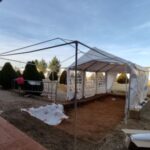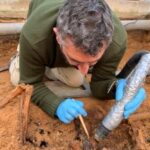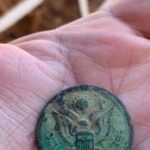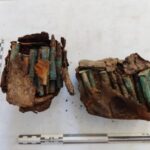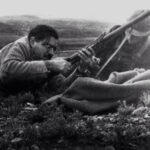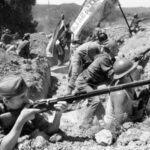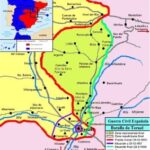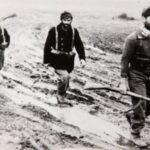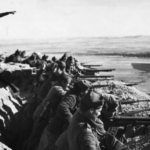2024 Spain: battle of Teruel human remains exhumation
Closed
Jun 2-Jun 29, 2024
Archaeology, Bioarchaeology, Forensic Studies
Dr. Llorenç Alapont Martin
$4,675
April 5, 2024
Apr 13, 2024 9:00am Pacific Time
8 Semester credits
Please read before applying
This program is focused on exhumation of human remains who perished during the 1937-38 Battle of Teruel, one of the most vicious of the Spanish Civil War. The program is designed to train students in the excavation and exhumation of mass burials in conflict zones and prepare participants with methodological and legal issues (chain of custody, documentation, etc) that are crucial elements of such work. This program takes place where family & community members are alive and have deep and intensive interest in the exhumation work.
This program is emotionally and physically demanding, requiring the utmost respect for the dead and the living. Students should be aware of the challenges and should attend only if they feel this type of experience is for them. This program DOES NOT offer onsite professional grief counseling.
Program is Full
OVERVIEW
The Spanish Civil War (1936-1939) was a global political event and experimental grounds to test modern weaponry and war tactics. One of the most consequential battles of the war was the Battle of Teruel, fought between December 1937 and February 1938. The vicious battle took place during one of the worst winters in Spain and considered to be the ‘Stalingrad’ of the Spanish Civil War. More than 40,000 soldiers from both sides died there. At least 406 of these soldiers were buried in a large mass grave at the site of San Blas, a small cemetery on the outskirts of Teruel. The soldiers were buried side by side, regardless of the side they fought for, with their weapons, uniforms, boots, and personal objects. This mass burial is the focus of this program.
Initial investigations at San Blas were carried out in 2022 and the remains of 18 individuals were recovered. One individual wore a uniform with brass buttons with symbols of the U.S. Army and other American artifacts. This suggest that American members of the Abraham Lincoln Battalion were buried at San Blas, and that more U.S. citizens may be recovered there.
This program is design to train students in the process of human remain exhumation from mass graves. The goal is to identify and bring closure to families and decedents of these dead. In addition, this program train students how to plan, execute, record, document and identify individuals from mass burials. While our hope is that such skills will not be needed, reality is different, and professionals trained in excavation of mass burials are still needed across the world.
This program will extract an emotional toll on its participants. Families of the deceased will be present and there is still a deep political division in Spain about its civil war. This program requires resilience, perseverance, strong ethics and attention to details. Consider how challenging this program is before applying.
Instructors
All field school directors are experts in their field and passionate about their work. To discuss the suitability of this program for your career goals – whether within or outside academia – you are invited to contact the directors directly. For a broader discussion which CFS program to choose, you are welcome to contact our staff directly – you can do that through our “Contact Us” page.
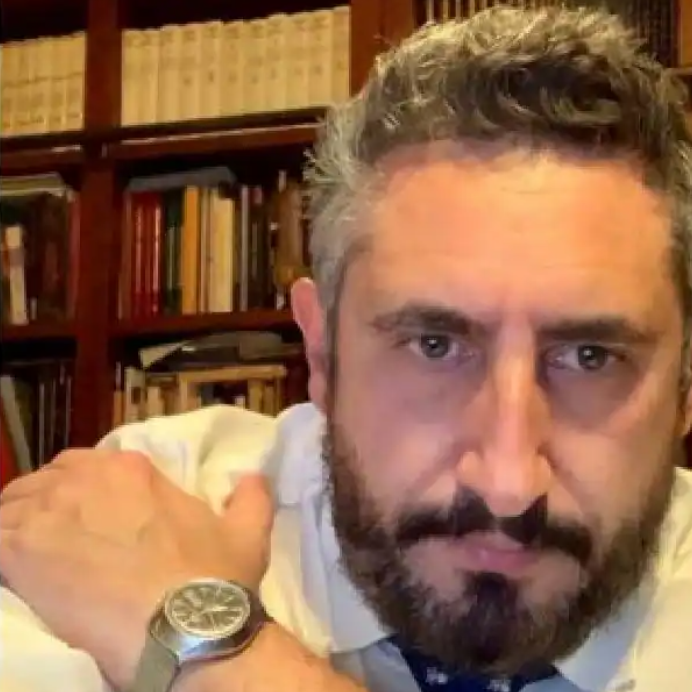

Prof. Llorenç Alapont Martin
Universidad Europea Valencia
Testimonials
This is a new program. There are no testimonials at this time
student fees (tuition)
what is covered
-
DEPOSIT IS PART OF TOTAL TUITION COST
-
Costs of Instruction
-
Room & Board
-
Cost of Academic Credit Units
-
Health and Evacuation Insurance
read befor you pay
- Application: You must apply online for this program – application is free
- Deposit: A $300 nonrefundable deposit (part of the total tuition cost) is required to secure a space in the program
- Credit Card Fee: Payments with credits cards incur 2.5% processing fee
- Late Fee: A $100 Late Fee will be added to the program costs if tuition is not paid in full by payment deadline
- Cancelation Policy: Carefully read our Cancelation Policy before committing to attend our programs
- Trip cancellation Insurance: Trip cancellation insurance is not provided by CFS. Such policies have changed due to Covid 19. If you wish to purchase an insurance policy that covers pandemic contingencies, explore Cancel for Any Reason (CFAR) plans. Insuremytrip or Travel Guard are possible websites where you may explore different insurance policies
Accommodations
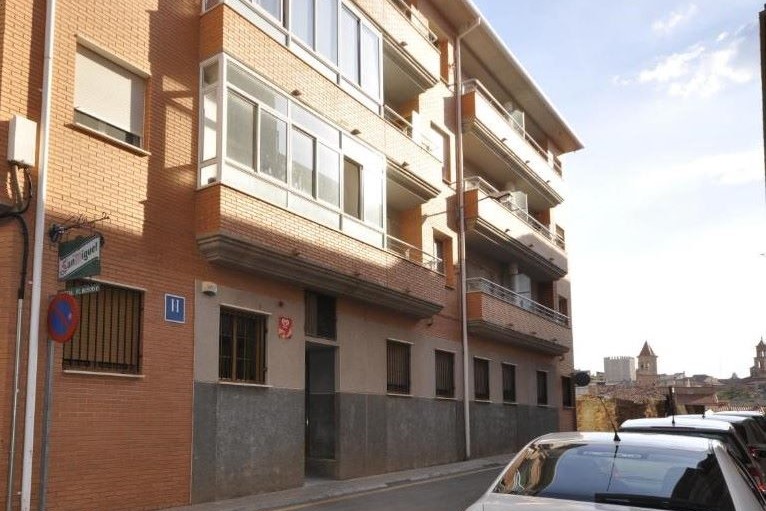

All staff and student will be staying at Hostal El Bugar in Teruel. The rooms are simple, comfortable and welcoming with free WiFi, TVs, minifridges, and ceiling fans. Rooms are single sex and shared between 2-4 people.
diet


The project provides breakfast, lunch and dinner throughout the week, with the exception of the lunch and dinner on the trip day (normally Saturday) and free day (normally Sunday). Please let us know of any dietary restrictions (vegetarian/vegan) so that we may inform the restaurant in advance.
travel information
We suggest you hold purchasing airline tickets until six (6) weeks before the program begins. Natural disasters, political changes, weather conditions & a range of other factors may require the cancelation this field school. CFS typically makes a final Go/No Go decision about six weeks before the field school begins. To protect students from potential financial loss, we urge students to purchase airline tickets only six weeks prior to program beginning.
We will meet students on Sunday, the first day of the program, at 5:00pm at the Valencia Airport (VLC). Meeting point is by the Tourist Information Booth at the Arrival Hall. Students will then be transported to Teruel by car, a trip of about two hours.
visa information


Citizens of the US, Canada and EU countries do not require visas to enter Italy. You will need your passport to be valid for at least 90 days and will enter on a tourist visa. Citizens of other countries are asked to check the embassy website page at their home country for specific visa requirements
No vaccinations are required for entry to Italy but anyone working in archaeology in the country needs to have an up-to-date tetanus shot
Meeting Point
| Date | Time | Location |
|---|---|---|
| June 2, 2024 | 5:00pm | Valencia Airport arrival area, by the Tourist Information Booth |
Safety
Our primary concern is with education. Traveling and conducting field work involves risk. Students interested in participating in our programs must weigh whether the potential risk is worth the value of education provided. While risk is inherent in everything we do, we do not take risk lightly. We engage in intensive review of each field school location prior to approval. Once a program is accepted, we review and monitor each program annually to make sure it complies with all our standards and policies, including student safety.
Students attending our international programs are covered by a comprehensive Health Insurance policy that includes physical illness or injury, mental or chronic conditions. There are no deductible and 100% of costs are covered up to $250,000. In addition, we provide Political & Natural Disaster Evacuation policy, which allow us to remove students from program location if conditions change.
Students attending our domestic programs (within the US) must have their own health insurance and provide proof upon enrollment. Program directors are familiar with local authorities and if in need of evacuation, local emergency services and/or law enforcement will be notified and activated.
We have an explicit and robust harassments & discriminations policies. If students feel they cannot discuss personal safety issues with program staff, they are welcome to call the CFS emergency hotline and talk directly with CFS staff members.
Call (+1 562 584-0761) or email (info@fieldsciences.org) if you have questions about the safety of any program.

